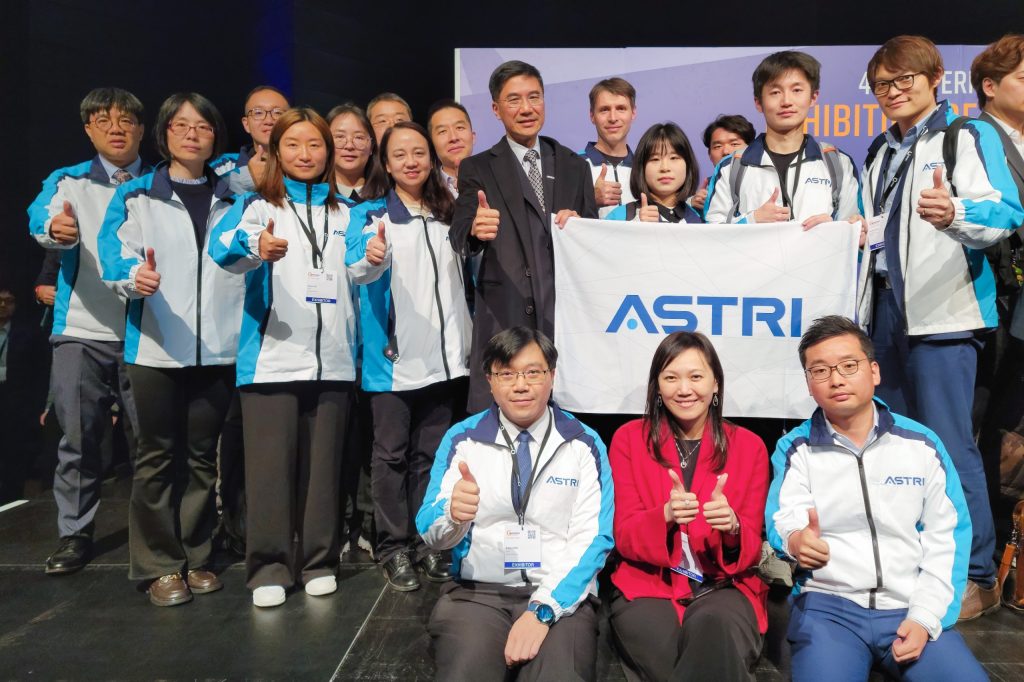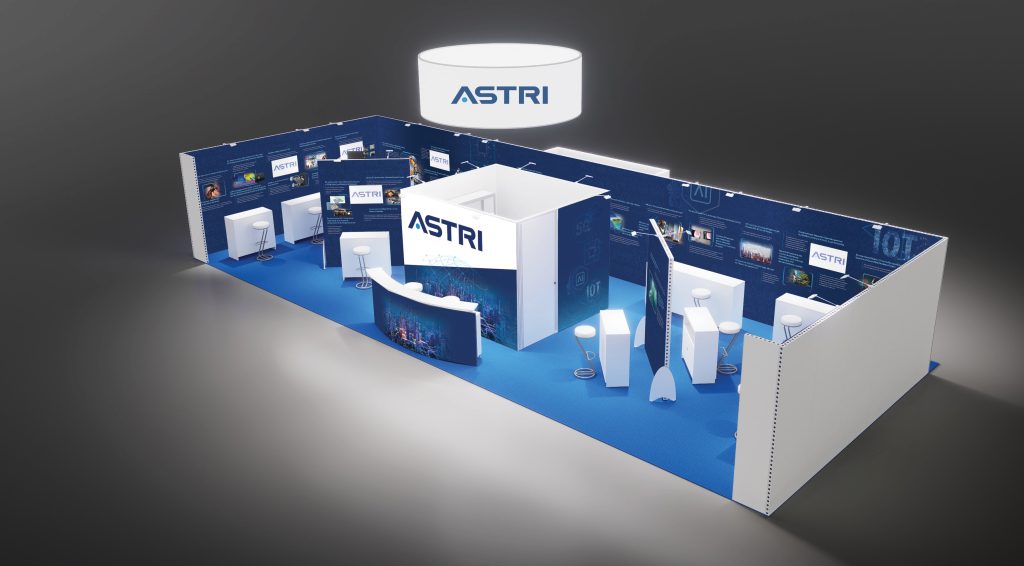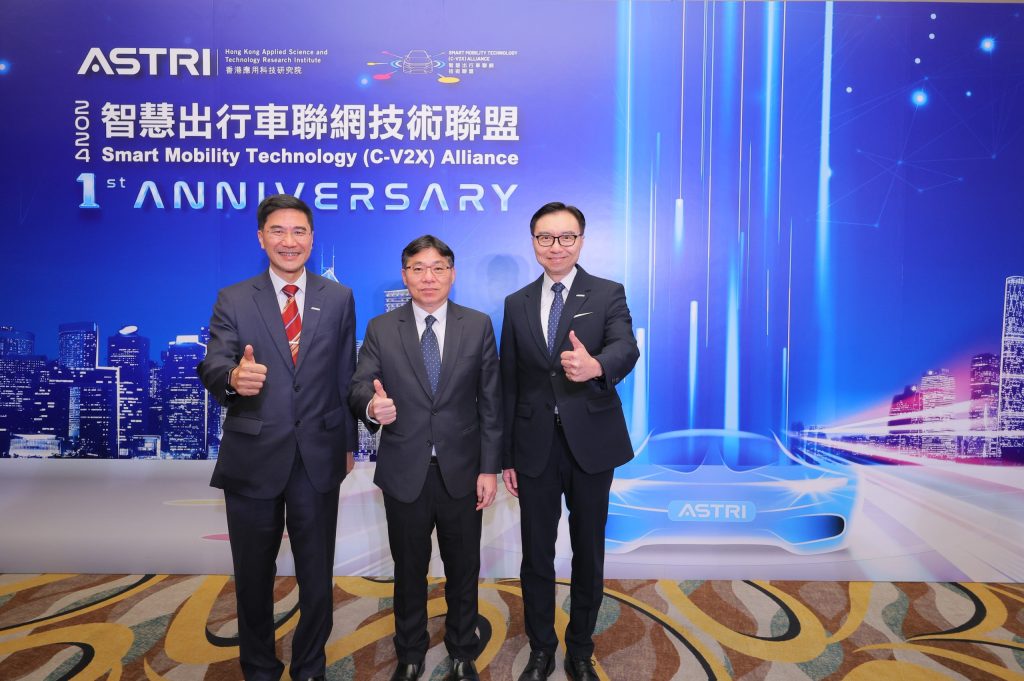[Hong Kong, 9 May 2017] The Hong Kong Applied Science and Technology Research Institute (ASTRI) today unveiled its plan to put greater focus on regional collaboration in terms of research and development (R&D) of financial technologies (FinTech), and anticipated the funding for FinTech projects will exceed HK$200 million in the coming 3 years.
In a media lunch, Mr Wong Ming-yam, BBS, JP, Chairman of ASTRI, said, “The focus of global economic growth in the future lies in innovation and technology. To achieve sustainable economic growth, it is necessary for Hong Kong to bolster development in innovation and technology, and set sights on regional collaboration and development. National development strategies, such as the ‘Greater Bay Area’, will create valuable opportunities for the city and ASTRI to embark on further FinTech R&D in the region.”
Last year, ASTRI reached a major milestone, as it entered into agreements with two organisations in Thailand, one of the countries along the “Belt and Road”, to jointly develop FinTech that is expected to help turn the country into a cashless society.
“To strengthen the city’s financial infrastructure, ASTRI has started engaging in FinTech R&D from 2014. Since then, we have dedicated HK$145.5 million to FinTech R&D, covering 48 projects, 15 of them being in collaboration with financial institutes,” said Dr Frank Tong, Chief Executive Officer of ASTRI. “To embrace the opportunities arising from further regional integration, ASTRI is expected to dedicate more than HK$200 million to the development of FinTech and double its number of FinTech R&D experts in the coming 3 years.”
ASTRI places a strong focus on commercialising new technologies it develops by transferring them to different industries to create value for the society. Over the past 10 years, the number of government-funded R&D projects amounts to more than 400 with a total investment of over HK$3.2 billion, while the number of industry-funded projects is 837 with a total investment of HK$730 million. In Year 2016-17 alone, ASTRI embarked on 91 new R&D projects, involving an investment of HK$292 million, and achieved a total of 60 technology transfers, involving a total investment of HK$102 million.
ASTRI has partnered with a number of organisations to establish 26 joint laboratories and research centres so far. These organisations include Airport Authority Hong Kong, the Hong Kong Monetary Authority, The Hongkong and Shanghai Banking Corporation Limited, Bank of China (Hong Kong) Limited, the University of Hong Kong, the Chinese University of Hong Kong, and the Hong Kong University of Science and Technology etc.
ASTRI is the largest research institute in Hong Kong with more than 600 staff members, 85% of whom are technology researchers and experts.
About ASTRI
Hong Kong Applied Science and Technology Research Institute Company Limited (ASTRI) was founded by the Government of the Hong Kong Special Administrative Region in 2000 with the mission of enhancing Hong Kong’s competitiveness in technology-based industries through applied research. ASTRI’s core R&D competences in various areas are organised under seven Technology Divisions, namely Communications Technologies, Electronics Components, Mixed Signal Systems IC, Advanced Digital Systems, Opto-electronics, Security and Data Sciences, and Intelligent Software and Systems. Five areas of applications including financial technologies, intelligent manufacturing, next generation network, health technologies, and smart city are identified for major pursuit. For further information about ASTRI, please visit www.astri.org
Media enquiries:
Ms Eunice Cheng Tel: (852) 3406 2517 Email: [email protected]
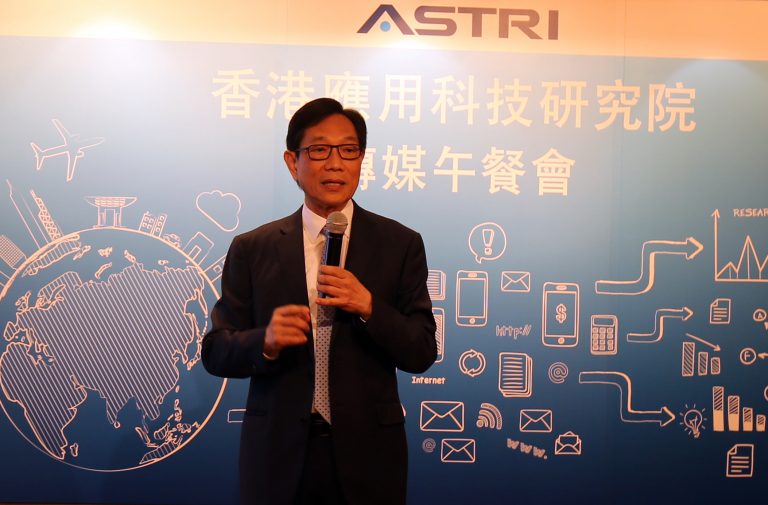
Mr Wong Ming-yam, BBS, JP, Chairman of ASTRI, speaks of the opportunities arising from the “Guangdong-Hong Kong-Macau Greater Bay Area” plan and the “Belt and Road” initiative.
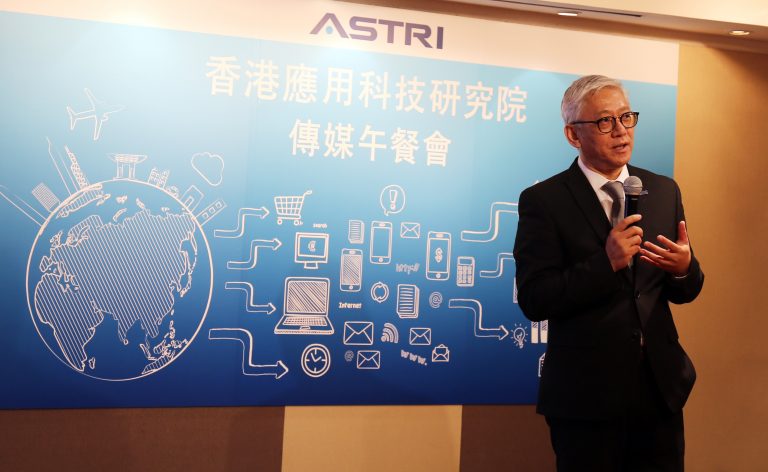
Dr Frank Tong, Chief Executive Officer of ASTRI, unveils ASTRI’s development plan.
– ENDS –
Related News
